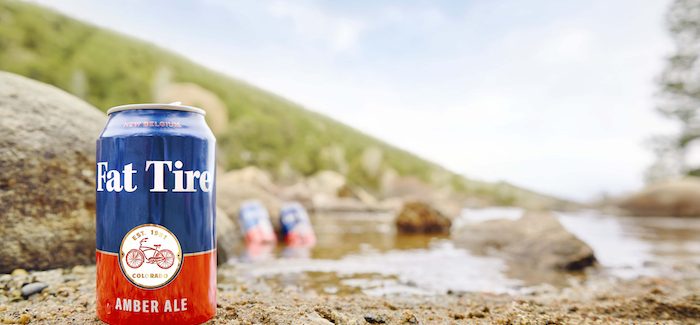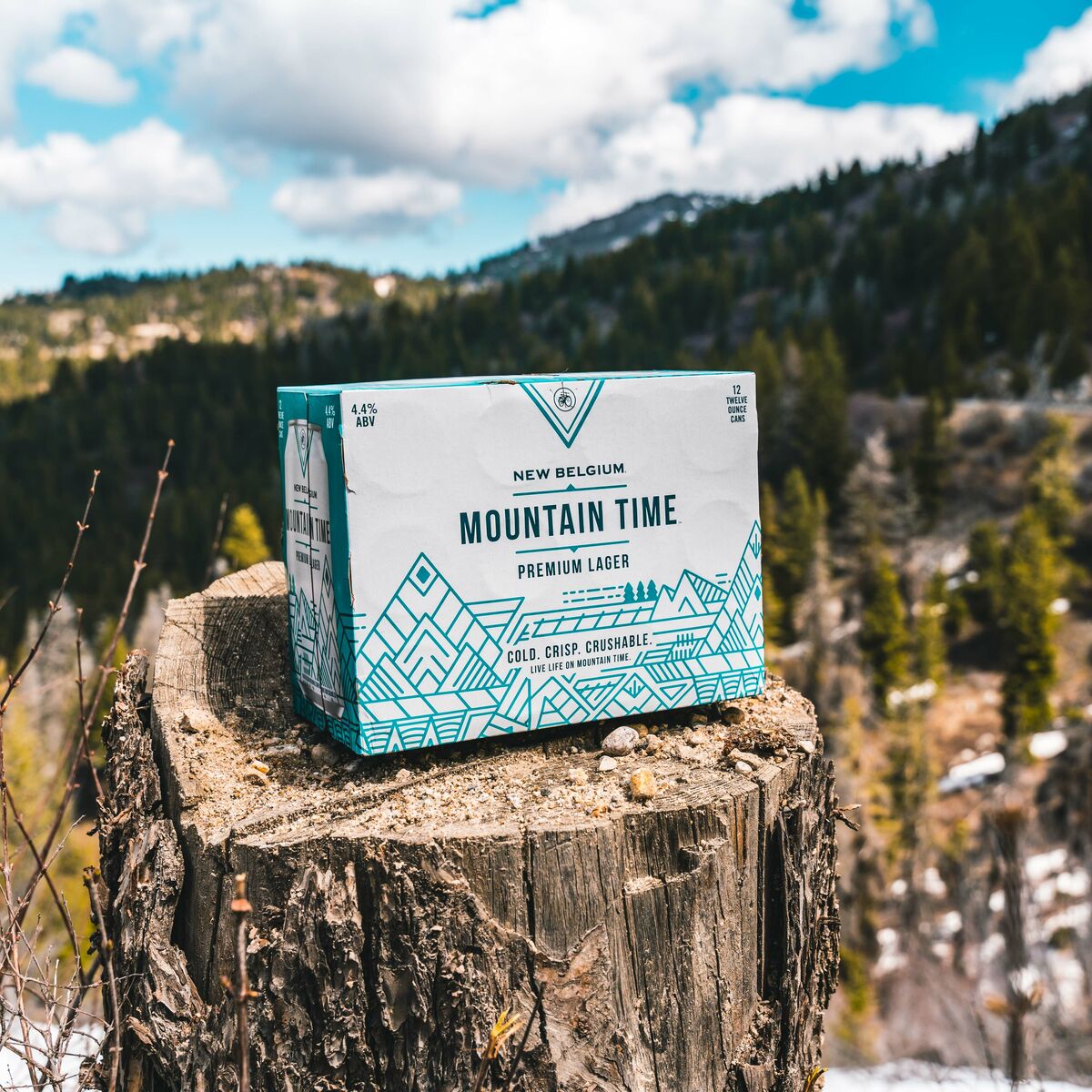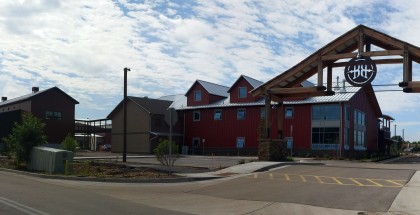New Belgium Brewing Interview | Sustainability & Future Goals

- Brian Phipps
- On January 11, 2022
Given the continued craziness of COVID-19 and its impacts on the craft beer industry, how are breweries’ sustainability goals progressing? Did breweries have to abandon these goals in 2021 or were they able to meet their objectives? To answer these questions, I recently interviewed two sustainability leaders in the craft brewing industry, Brewery Vivant and New Belgium Brewing.
Below is my interview with Katie Wallace, Director of Social and Environmental Impact at New Belgium Brewing. You can read the interview with Kris Spaulding, Owner and President of Brewery Vivant, here.
Interview with New Belgium Brewing Director of Social and Environmental Impact, Katie Wallace
In regards to environmental responsibility, what are your proudest accomplishments of 2021 at New Belgium?
In 2021, we open-sourced our decades of experience with climate action by launching the Carbon Neutral Toolkit for Craft Brewers. Several breweries are in the process of using it now and we’re excited to see what comes of it!
We hired a badass Energy Engineer, Andy Collins, who is leveling up NBB’s brewing efficiency in a huge way.
We added Mountain Time Lager to our roster of Carbon Neutral Certified beers.
And finally, we launched a new climate action program with our amazing suppliers. Since they contribute about 85% of the GHGs in a beer’s lifecycle, we’ll need their partnership in reaching our 2030 decarbonization goals.

For the craft brewery industry as a whole, what progress in sustainability did you see in 2021? What are the biggest sustainability challenges you see moving forward?
Folks are now talking about climate action with a new sense of urgency, which signals progress for the industry as a whole. Wildfires hit many breweries hard in 2020—hops especially took a hit. The big freeze in February this year cut CO2 supplies and shut down production in a lot of breweries. Now, barley farmers are saying this year was the worst crop they’ve seen in their lifetime due to unrelenting heat throughout the growing season. Things are starting to hit home, and the industry is talking about solutions.
At the same time, a lot of craft breweries have been negatively affected by the pandemic, whether having to shut down taprooms and reduce capacity, or struggling to get supplies with the supply chain disruptions. Costs of materials and labor are going up. That makes it a tough time to invest in climate action, which undoubtedly has confident paybacks, but often requires up-front investments. This is why public policy is so critical. Through legislation like the Build Back Better plan, we can work together as a nation to modernize the grid and update transportation infrastructure in a more cost-effective way.
We encourage breweries to communicate the business case for that legislation because climate change is a massive business risk (they should check out our Carbon Neutral Toolkit at www.drinksustainability.com for bipartisan talking points and general pro tips on talking to policymakers). This can also happen locally—we helped encourage our City Utility in Colorado to commit to 100% renewable electricity by 2030. Now that it’s happening at the grid level, it will make it more affordable for all breweries in Fort Collins to reach the same carbon-neutral goals New Belgium has.

Did you see any initiatives or actions taken by other craft beer businesses in 2021 that you admire?
We admire any business taking meaningful steps to address climate change head-on. This year, it was great to hear from breweries like Sunday Beer Co. and Upslope, who are referencing our toolkit as they calculate their emissions and work to curb them.
Allagash has done some impressive work to improve recycling in Maine. Some folks think recycling is a given, but with thousands of incongruent recycling regulations at every city and county level, the United States does an extremely poor job of capturing endlessly recyclable materials like glass and aluminum. This drives up our GHG emissions as well. Any effort to drive a circular economy for these materials is also a strong decarbonization effort. We’re impressed with Allagash’s work in this space.
It’s also been great to see Sierra Nevada jumping into the policy advocacy game for smart energy and climate policy. Their voice is very influential across the aisle.
What are New Belgium’s carbon-neutrality goals for the future?
Climate commitments for 2030 include:
- All brands Certified Carbon Neutral
- 100% Renewable Electricity in our operations
- Doing our part to limit warming to 1.5-degree C as prescribed by Science Based Target Initiative (SBTI) with absolute GHG reductions of 55% in our operations and 30% in our supply chain from 2019-2030 (regardless of growth)
We’ve modeled our annual progress through 2030, so our 2022 goals will move us in this direction.
Expect some exciting announcements for big projects in 2022, but know we’re chipping away at the tougher topics like natural gas alternatives and others behind the scenes.
We’ll also continue to share the business case for aggressive climate action with our elected officials at the local, state, and federal levels. As mentioned in the WRI report released 12/15, it IS possible for the U.S. to meet our critical 2030 climate goals to limit warming to 1.5-degree C, but it’s going to take urgent and coordinated efforts across the country to be successful.
The U.S. has come together to protect our shared prosperity many times in history – it’s part of what has made us such an amazing country and a global leader. WWII, the Great Depression, the Dust Bowl… amidst these shared threats we banded together as a nation and that’s how we ended up with coordinated incentives like oil & gas subsidies and ag subsidies. It’s time to update programs like that to address perhaps the biggest threat to our shared prosperity in our country’s history. Brewers’ (and beer drinkers’) voices really matter to elected officials. We need to grow climate champions throughout the midterm elections and encourage them to help protect our businesses by acting fast on climate.
What can craft beer fans do in 2022 to support New Belgium achieve its carbon-neutrality goals?
Email your Senator and tell them we need climate legislation passed now. This isn’t a partisan issue – this is how we save our businesses, our beer and our outdoor playgrounds.
* * * * *
In addition, Fat Tire Brand Manager, Taylor Boyd, also mentioned how you can follow New Belgium’s sustainability progress:
- Tune in to our action campaigns at www.drinksustainably.com and on Instagram. We will continue to create platforms to advocate for stronger climate action from businesses and elected officials.
- Our goal is to mobilize beer drinkers and rally together in this fight. And when you’re at the store or your favorite bar, know that ordering a Fat Tire or Mountain Time Lager means you’re choosing a beer that’s urgently investing in limiting warming to 1.5-degree Celsius AND showing receipts.
Featured image courtesy of New Belgium Brewing.
Related Posts
The Ultimate Roundup | 50 Chocolate Beers for Valentine’s Day... February 13, 2017 | Danele Bova

Sustainability on the New Breckenridge Brewery Campus... July 17, 2015 | Brian Phipps

Ultimate 6er | The CW’s Crazy Ex-Girlfriend... October 18, 2017 | Scott Johnson

Butcher’s Bistro Donating Portion of March Sales with Confluence Tap Handle... February 18, 2016 | Brian Phipps




Submit a Comment